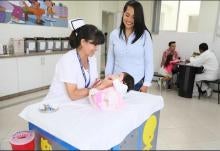Recalculation of trends in mortality from accidents, suicides, and homicides in Argentina, 1997-2018
Objective.
To describe the impact of deficient cause-of-death records on trends in death by suicide and homicide, through imputation of missing information.
Methods.
Observational and descriptive study of temporal trends in recorded deaths from external causes in Argentina in the period 1997-2018. For imputation of intent, logistic models were adjusted on the basis of predictive variables from the Statistical Report on Deaths. Vital statistics and population projections were used as secondary sources.















